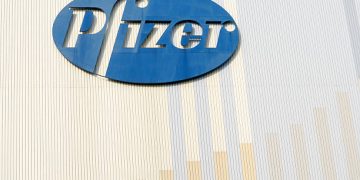President Donald Trump announced on Tuesday that his administration has reached an agreement with Pfizer to reduce U.S. drug prices and temporarily exempt the company from new pharmaceutical tariffs.
Under the deal, Pfizer will make its medications available at lower prices, including selling to Medicaid patients at what the administration calls the “most-favored-nation” price—matching the lowest price offered in other developed nations. New drugs will also follow this pricing model for Medicare, Medicaid, and commercial payers.
As part of the arrangement, Pfizer secured a three-year exemption from pharmaceutical-specific tariffs, provided the company invests further in U.S. manufacturing. Pfizer has committed to a $70 billion investment to expand domestic drug manufacturing and research operations. The company’s shares rose more than 4% following the announcement.
Trump said discounted drugs will be available directly to consumers online through a new government website, TrumpRx.gov, where popular medications could be sold at reductions ranging from 50% to 100%. Examples include menopause treatment Duavee at an 85% discount, eczema ointment Eucrisa at 80% off, and overactive bladder medication Tovias at an 85% discount. Other drugs, including Xeljanz for rheumatoid arthritis and Zazvpret for migraines, will also see price cuts between 40% and 50%.
Pfizer CEO Albert Bourla stated that the company met the administration’s requests, which included lowering U.S. prices, strengthening negotiations abroad, and piloting direct-to-consumer sales models. “The big winner clearly will be the American patients,” Bourla said, emphasizing that both consumers and the broader economy would benefit.
The deal comes as the administration prepares to impose a 100% tariff on branded and patented pharmaceuticals beginning October 1, unless companies manufacture in the United States. The exemption will apply to firms that have already begun construction on U.S.-based facilities.
Other pharmaceutical companies are reportedly in talks for similar arrangements. The White House confirmed that Eli Lilly is currently in negotiations, though no details have been provided.
Analysts note the agreement could set a precedent for other drugmakers, balancing the administration’s push for lower prices with industry concerns about tariffs. BMO Capital Markets analyst Evan Seigerman described the deal as positive for Pfizer and the broader sector, noting that it provides clarity while reducing immediate tariff risks.
#PharmaNews #DrugPricing #TariffUpdate #HealthcarePolicy #NewsUpdate















